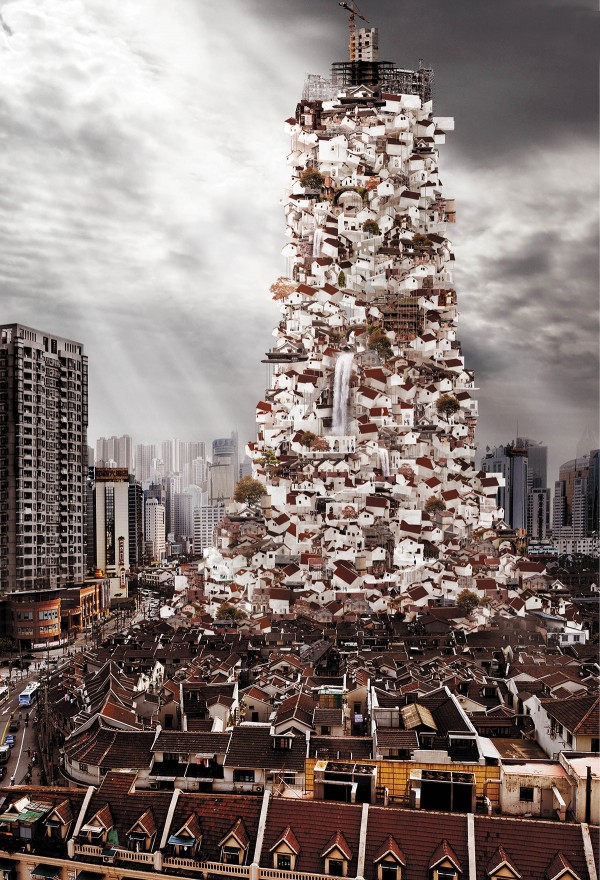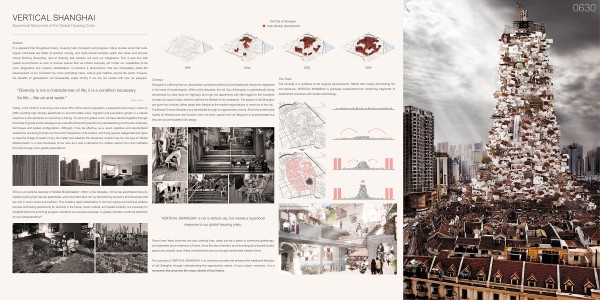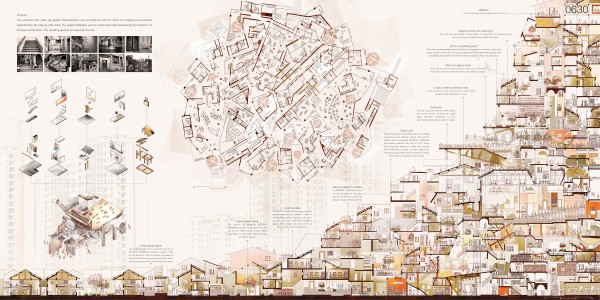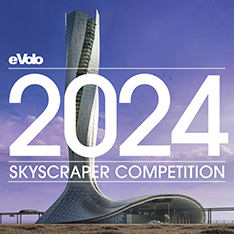Honorable Mention
2016 Skyscraper Competition
Yuta Sano, Eric Nakajima
Australia
It is apparent that throughout history, diversity fuels innovation and progress. Many studies show that multi-lingual individuals are better at problem solving, and multi-cultural societies spark new ideas and provoke critical thinking. Reversibly, lack of diversity and variation will stunt our imagination. This is also true with spatial environments, as lack of diverse spaces that we inhabit everyday will hinder our capabilities to be more imaginative and creative. Globalization is therefore a phenomenon that has indisputably aided the advancement of our civilization by cross-pollinating ideas, culture and tradition around the world, however, the benefits of globalization will foreseeably expire shortly if we are not careful with how we progress.
Today, in the midst of a housing crisis where 70% of the world’s population is expected to be living in cities by 2050, building high-density apartments to accommodate mass migration and population growth is a natural response to the demands our economy is facing. To solve this global crisis, we have banded together through free trade of goods and knowledge to provide efficient building solutions by standardizing construction materials, techniques and spatial configurations. Although it may be effective, as a result, repetitive and standardized apartments are being built all over the world irrespective of its location, and living spaces categorized into types to meet the image of modern living. No matter how idealistic this temporary solution may be, this type of ‘Global Modernization’ is a slow devolution of our race as it sets a standard of a unified cultural norm and irradiates diversity through socio-global expectations.
China is an extreme example of ‘Global Modernization’. Within a few decades, China has assimilated cities by rapidly building high-density apartments, and more often than not, by demolishing old towns and structures that are rich in local culture and tradition. This careless rapid urbanization is not only wiping out historical artifacts but also eliminating opportunity for diversity in the future. Local, cultural, and spatial diversity is a necessity for enlightenment and enriching progress, therefore we must ask ourselves “is global unification worth the extinction of local characteristics?”

















